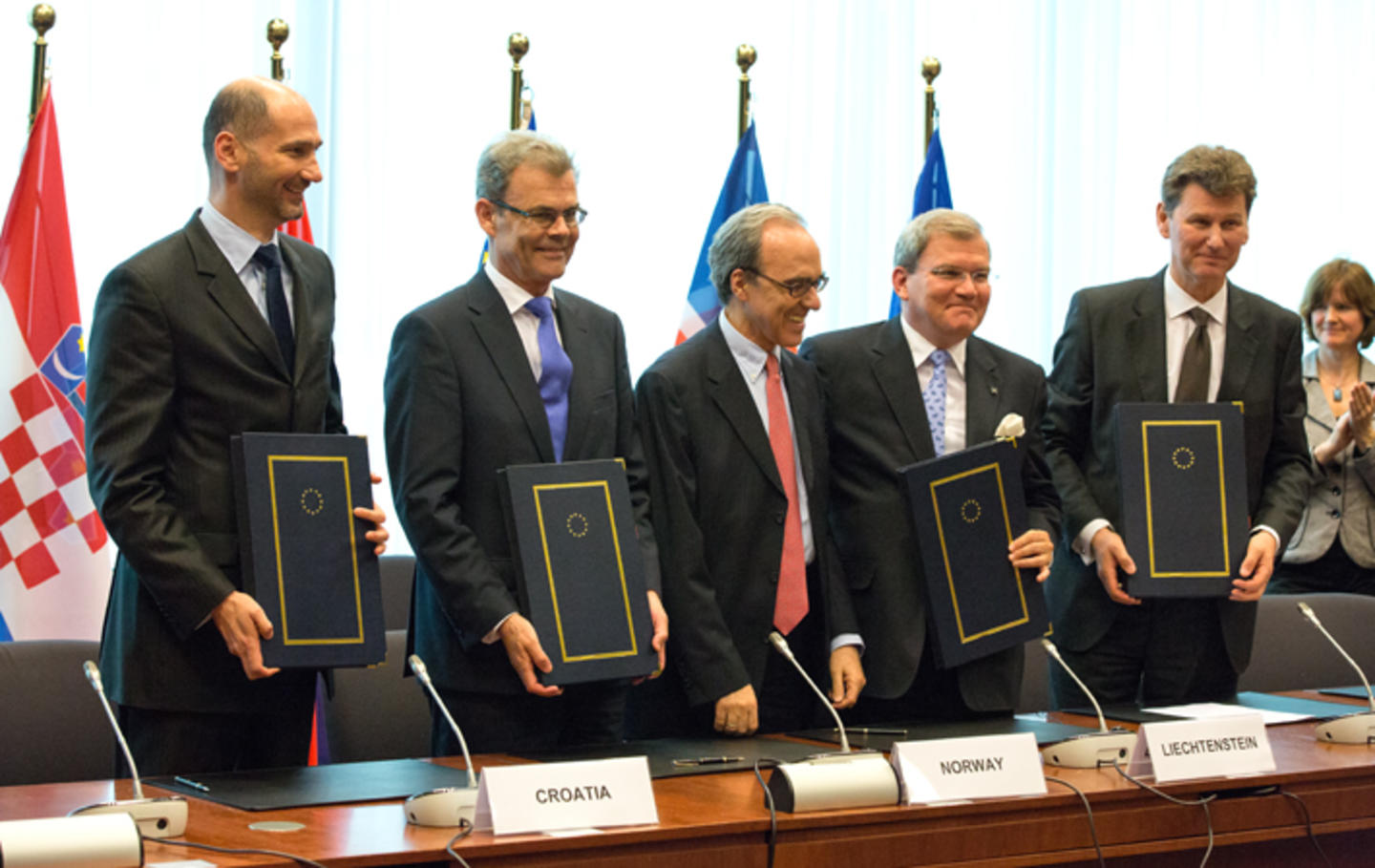With negotiations having ended in November last year, Friday's signing marks the formal entry of Croatia into the EEA.This makes Croatia the 16th beneficiary country of the existing EEA and Norway Grants scheme for the period 2009-2014 (projects may be implemented until 2017). For the remainder of this period, €9.6 million has been allocated to projects aimed at reducing social and economic disparities and strengthening bilateral ties between Croatia and the three donor countries, Iceland, Liechtenstein and Norway. Justice and home affairs and human and social development are the biggest areas of support. The official signing of the Memoranda of Understanding (MoU) between Croatia and the three donor countries - the overarching agreements setting out the priorities and allocation of funds to programmes - will take place on 29 April in the Croatian capital, Zagreb.
Croatia – in EEA and EU
On 1 July last year, Croatia celebrated almost 20 years of economic and social progress since declaring independence by becoming the 28th member of the European Union. When a country becomes a member of the EU, it shall also apply to become party to the EEA Agreement. EU and EEA membership is important not just for the economic benefits but also for Croatia’s political normalisation following the bitter Balkan wars of the 1990s, anchoring it firmly in the European mainstream.
Far-reaching reforms
Croatia is a very different country than it was at the start of the EU accession process in 2005. The country has had to undertake far-reaching political, economic and institutional reforms and made substantial progress. Before the global financial crisis of 2008-2009, the Croatian economy was growing at an annual rate of 4-5%, during which time incomes doubled and economic and social opportunities dramatically improved.
However, the prolonged crisis put this progress to the test with Croatia suffering from negative economic growth and unemployment rising to over 14%. GDP per capita was 40% below the EU average in 2012 and joblessness among young people in particular, as in much of Europe, is a serious concern at a staggering 40%. The support from the Grants aims to help Croatia tackle some of these problems.
